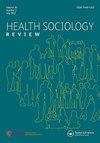Conflicted hope: social egg freezing and clinical conflicts of interest
IF 2.5
2区 医学
Q2 HEALTH POLICY & SERVICES
引用次数: 14
Abstract
ABSTRACT Over the past decade ‘social egg freezing’ has emerged as a technology of hope that purports to empower women by enabling them to continue their careers or find the right partner without the fear of jeopardising their fertility. This technology has been promoted and celebrated by fertility companies, bioethicists, clinicians, and multi-national corporations such as Apple and Facebook. While critical questions have been raised, they tend to focus on ethical and legal issues, such as informed consent and patient autonomy. This paper uses Foucault’s notion of dispositif as analytic lens to examine the entanglement of the commercial arrangements of fertility companies, the discursive use of hope in promoting these services, and effects on professional medical care. Drawing on socio-political analyses of hope, this paper examines the potential financial conflicts of interest facing clinicians and the way discourses of hope might mask problematic financial relations and lack of evidence of effectiveness.冲突的希望:社会卵子冷冻和临床利益冲突
摘要在过去的十年里,“社会卵子冷冻”已经成为一种充满希望的技术,旨在通过让女性能够继续自己的职业生涯或找到合适的伴侣来增强她们的能力,而不必担心会危及她们的生育能力。这项技术得到了生育公司、生物伦理学家、临床医生以及苹果和脸书等跨国公司的推广和庆祝。虽然提出了一些关键问题,但它们往往侧重于伦理和法律问题,如知情同意和患者自主权。本文以福柯的处置概念为分析视角,考察了生育公司商业安排的纠缠、希望在促进这些服务中的话语使用,以及对专业医疗的影响。基于对希望的社会政治分析,本文考察了临床医生面临的潜在财务利益冲突,以及希望的话语可能掩盖有问题的财务关系和缺乏有效性证据的方式。
本文章由计算机程序翻译,如有差异,请以英文原文为准。
求助全文
约1分钟内获得全文
求助全文
来源期刊

Health Sociology Review
Multiple-
CiteScore
7.50
自引率
0.00%
发文量
14
期刊介绍:
An international, scholarly peer-reviewed journal, Health Sociology Review explores the contribution of sociology and sociological research methods to understanding health and illness; to health policy, promotion and practice; and to equity, social justice, social policy and social work. Health Sociology Review is published in association with The Australian Sociological Association (TASA) under the editorship of Eileen Willis. Health Sociology Review publishes original theoretical and research articles, literature reviews, special issues, symposia, commentaries and book reviews.
 求助内容:
求助内容: 应助结果提醒方式:
应助结果提醒方式:


